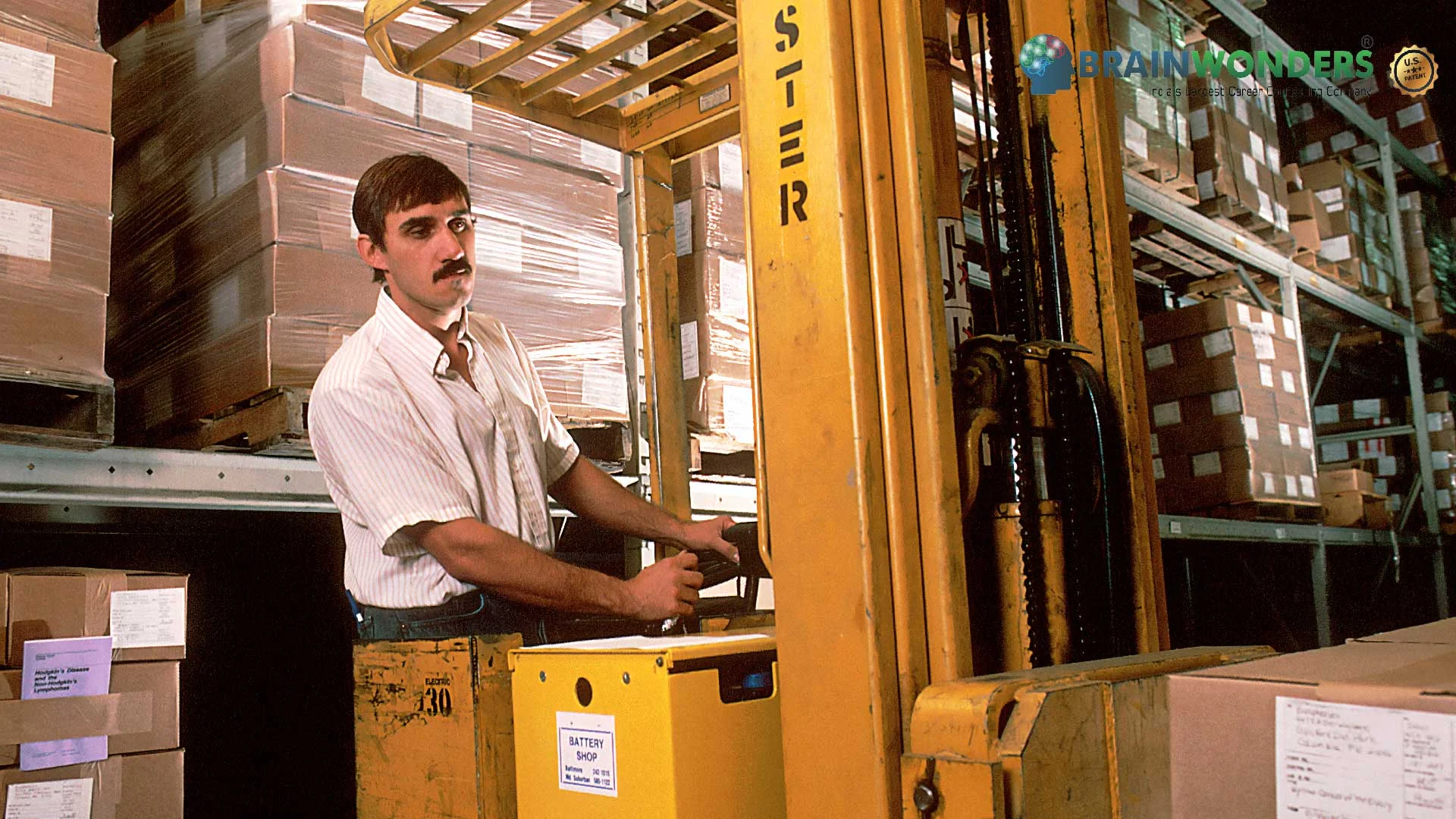How to become a Supply Chain Manager
Overview, Courses, Exam, Colleges, Pathways, Salary

Overview
Who is Supply Chain Manager ?
A supply chain manager is someone who is responsible for the management of equipment, hardware, and other logistical details of a company, or a company’s division. It is their job to manage all of the steps needed to purchase raw materials, deliver it to various points throughout the business, ensure that the company makes enough of its product to meet customer demand, and deliver the output to the right destinations on time.
Supply chain managers work with external partners to procure parts and raw materials needed to produce the product, create the inventory, and sell the product to outside markets. These professionals evaluate suppliers and negotiate contracts with vendors. Because this role is a vital necessity, you can see why supply chain management lives under the umbrella of operations management. Without materials, there are no products to manage and no need for workers to make the products.
Typical day at work
What does Supply Chain Manager do?
A supply chain manager oversees and manages an organization's entire supply chain process. Their role involves ensuring the smooth flow of goods, services, and information from suppliers to customers while optimizing efficiency, reducing costs, and meeting customer demands. Here are some key responsibilities and tasks of a supply chain manager:
- Strategic Planning: Supply chain managers develop and implement strategic plans to optimize the supply chain network. It includes setting goals, defining key performance indicators, and aligning the supply chain strategy with the overall business objectives.
- Supplier Management: They establish and maintain supplier relationships, negotiate contracts, and manage supplier performance. They evaluate suppliers based on quality, reliability, cost, and delivery timelines to ensure a reliable supply of materials or services.
- Inventory Management: Supply chain managers oversee inventory levels and develop management strategies to minimize carrying costs while meeting customer demand. They analyze demand forecasts, track inventory levels, and implement strategies like just-in-time (JIT) inventory or safety stock to optimize inventory levels.
- Logistics and Transportation: They coordinate and manage transportation activities, including selecting carriers, negotiating freight rates, and monitoring the transportation process to ensure timely and cost-effective delivery. They also manage customs compliance and import/export requirements.
- Demand Planning and Forecasting: Supply chain managers analyze market trends, customer demands, and historical data to forecast future demand for products or services. They collaborate with sales and marketing teams to develop accurate demand forecasts for procurement and production planning.
- Process Optimization: They continuously evaluate and improve supply chain processes, identifying areas for optimization and efficiency enhancement. It includes streamlining workflows, implementing automation and technology solutions, and eliminating bottlenecks to improve overall supply chain performance.
- Risk Management: Supply chain managers assess and manage risks in the supply chain, including disruptions, supplier reliability, and geopolitical factors. They develop risk mitigation strategies and contingency plans to minimize the impact of potential disruptions on the supply chain.
- Cross-functional Collaboration: They collaborate with various internal teams, including procurement, production, sales, finance, and customer service, to ensure alignment and coordination across the supply chain. Effective communication and collaboration are essential for seamless operations and customer satisfaction.
- Performance Measurement and Analysis: Supply chain managers establish metrics and key performance indicators (KPIs) to monitor supply chain performance. They analyze data, generate reports, and identify areas for improvement to drive operational excellence and achieve supply chain goals.
Abilities and Aptitude needed
What are the skills, abilities & aptitude needed to become Supply Chain Manager?
Several skills, abilities, and aptitudes are essential for a successful supply chain manager. Here are the key attributes needed for the role:
- Supply Chain Knowledge: A strong understanding of supply chain management principles, concepts, and best practices is essential. It includes knowledge of procurement, logistics, inventory management, demand planning, and supplier management.
- Analytical and Problem-Solving Skills: Supply chain managers should have strong analytical skills to gather and analyze data, identify patterns, and make informed decisions. They should be able to solve complex problems, optimize processes, and make data-driven recommendations.
- Communication and Collaboration: Effective communication is crucial in coordinating activities across different teams and stakeholders. Supply chain managers should possess excellent verbal and written communication skills to collaborate with suppliers, internal departments, and customers to ensure smooth operations and build strong relationships.
- Strategic Thinking: Supply chain managers must think strategically and have a long-term perspective. They should be able to align the supply chain strategy with overall business goals, anticipate future trends, and proactively develop strategies to optimize the supply chain network.
- Leadership and Team Management: Supply chain managers often lead cross-functional teams, so strong leadership and team management skills are vital. They should be able to motivate team members, foster collaboration, resolve conflicts, and provide guidance to achieve supply chain objectives.
- Technical Competence: Proficiency in using supply chain management software, enterprise resource planning (ERP) systems, and data analytics tools is crucial. Supply chain managers should be comfortable working with technology and able to leverage digital solutions to optimize supply chain processes.
- Adaptability and Resilience: The supply chain landscape is dynamic, and unforeseen challenges can arise. Supply chain managers must be adaptable, flexible, and resilient in navigating unexpected situations, making quick decisions, and managing change effectively.
- Financial Acumen: Understanding financial principles, cost management, budgeting, and profitability analysis are essential for supply chain managers. They should be able to analyze financial data, identify cost-saving opportunities, and contribute to overall cost efficiency.
- Continuous Learning: The supply chain field constantly evolves, and supply chain managers should be passionate about continuous learning. Staying updated on industry trends, emerging technologies, and best practices is essential to drive innovation and stay competitive.
- Attention to Detail: Supply chain managers need strong attention to detail to ensure accuracy in forecasting, inventory management, and logistics coordination. They should be meticulous in reviewing contracts, analyzing data, and overseeing quality control processes.
Pathways
How to become an Supply Chain Manager?
Entrance Exam
Entrance Exam for Supply Chain Manager ?
Courses
Which course I can pursue?
Best Colleges
Which are the best colleges to attend to become an Supply Chain Manager?
Industries
Which Industries are open for Supply Chain Manager?
The role of a Supply Chain Manager is relevant and crucial in a wide range of industries. Here are some industries that typically have opportunities for Supply Chain Managers:
- Manufacturing: This includes industries such as automotive, electronics, consumer goods, pharmaceuticals, and industrial equipment, where managing the flow of raw materials, production processes, and distribution is essential.
- Retail and E-commerce: Supply Chain Managers are needed to oversee the procurement, inventory management, and logistics operations in retail and e-commerce companies, ensuring timely delivery of goods to customers.
- Logistics and Transportation: Freight forwarding companies, shipping companies, and logistics service providers require Supply Chain Managers to optimize transportation routes, manage warehouses, and coordinate logistics operations.
- Healthcare: Hospitals, pharmaceutical companies, medical device manufacturers, and healthcare supply chain organizations rely on Supply Chain Managers to manage inventory and distribution and ensure the availability of critical supplies and equipment.
- Energy and Utilities: Companies in the energy sector, including oil and gas, renewable energy, and utilities, require Supply Chain Managers to oversee the procurement of equipment, manage the transportation of resources, and optimize supply chain processes.
- Technology and Electronics: Supply Chain Managers play a vital role in technology companies, ensuring the efficient sourcing and delivery of components, managing production processes, and coordinating global distribution.
- Food and Beverage: In the food industry, Supply Chain Managers are responsible for managing the procurement, storage, and distribution of raw materials and finished products, ensuring food safety and quality.
- Aerospace and Defense: Supply Chain Managers are essential in aerospace and defence industries to manage the procurement of specialized components, coordinate complex logistics, and ensure compliance with strict regulations.
- Fast-Moving Consumer Goods (FMCG): FMCG companies, including those involved in food, beverages, personal care, and household products, require Supply Chain Managers to optimize supply chain processes, manage inventory, and coordinate distribution channels.
- Construction and Engineering: Supply Chain Managers in the construction and engineering sectors are responsible for procuring construction materials, managing suppliers, and coordinating the logistics of equipment and materials to project sites.
internship
Are there internships available for Supply Chain Manager?
Internships in supply chain management can be found in industries such as manufacturing, retail, logistics, technology, healthcare, and more. Companies of different sizes, ranging from multinational corporations to small and medium-sized enterprises, may offer internships in this field.
To find internships as a Supply Chain Manager, you can explore the following avenues:
- Company Websites: Visit the websites of companies you're interested in and look for their internship programs or career opportunities sections. Larger companies often have dedicated internship programs.
- Job Boards: Check online job boards specialising in internships, such as InternMatch, WayUp, or LinkedIn Internships. You can search for supply chain or logistics internships and filter the results based on location and industry.
- University Career Services: Many universities have career services departments that assist students in finding internships. They may have partnerships with companies that offer supply chain management internships.
- Professional Associations: Explore professional associations related to supply chain management, such as the Council of Supply Chain Management Professionals (CSCMP) or the Institute for Supply Management (ISM). These associations may have resources or job boards specifically for internships.
- Networking: Leverage your network by contacting professors, classmates, alums, and industry professionals. They may have information about internship opportunities or be able to refer you to relevant contacts.
Career outlook
What does the future look like for Supply Chain Manager?
In our increasingly globalized society, the importance of supply chain managers is reaching new heights. You can thank these managers for speedy delivery times on orders, lower shipping costs, and keeping a steady flow of your favorite products available. Supply chain managers oversee every stage of the process that gets products to your door from raw materials to finished products.
Accurate planning and forecasting help them ensure an appropriate supply of materials to keep the production process running smoothly. These managers must stay on top of any changes that could affect the supply chain from the availability of ingredients to shipping interruptions – facility closings or raw material shortages. Whatever the situation, they’re responsible for minimizing delays, and keeping costs down without affecting product quality.







